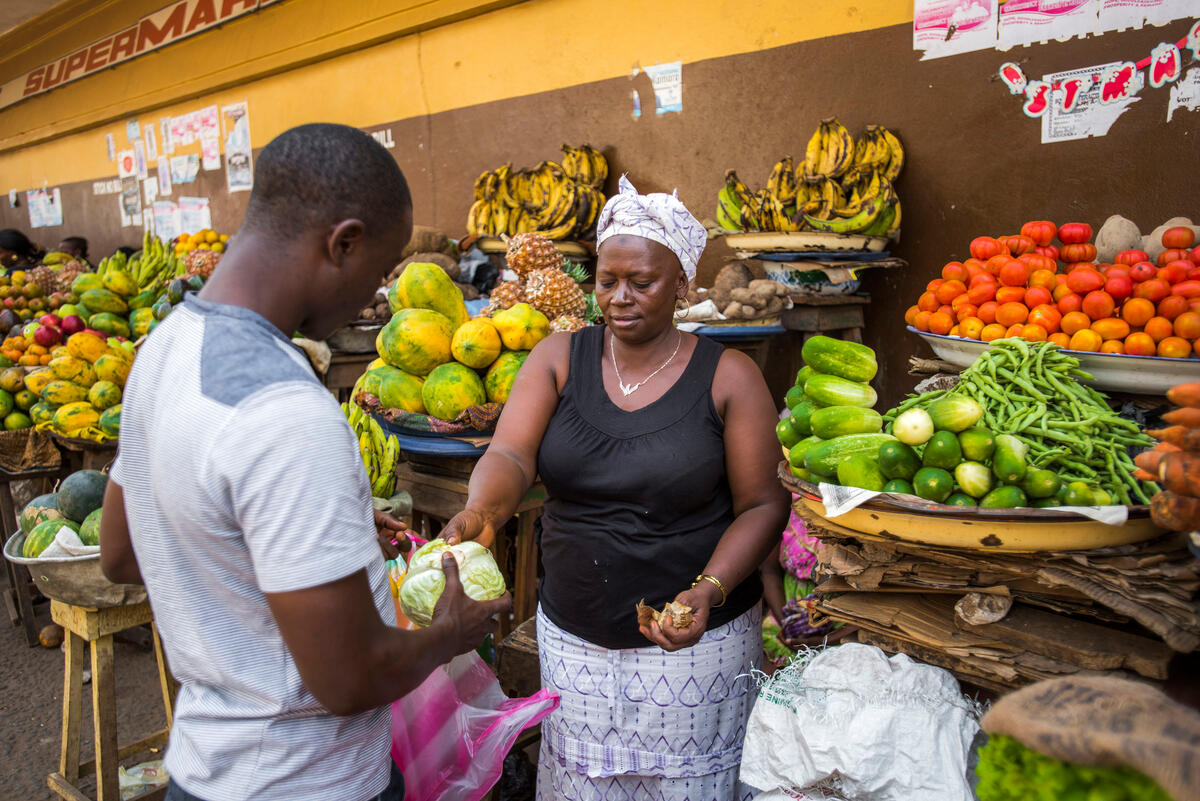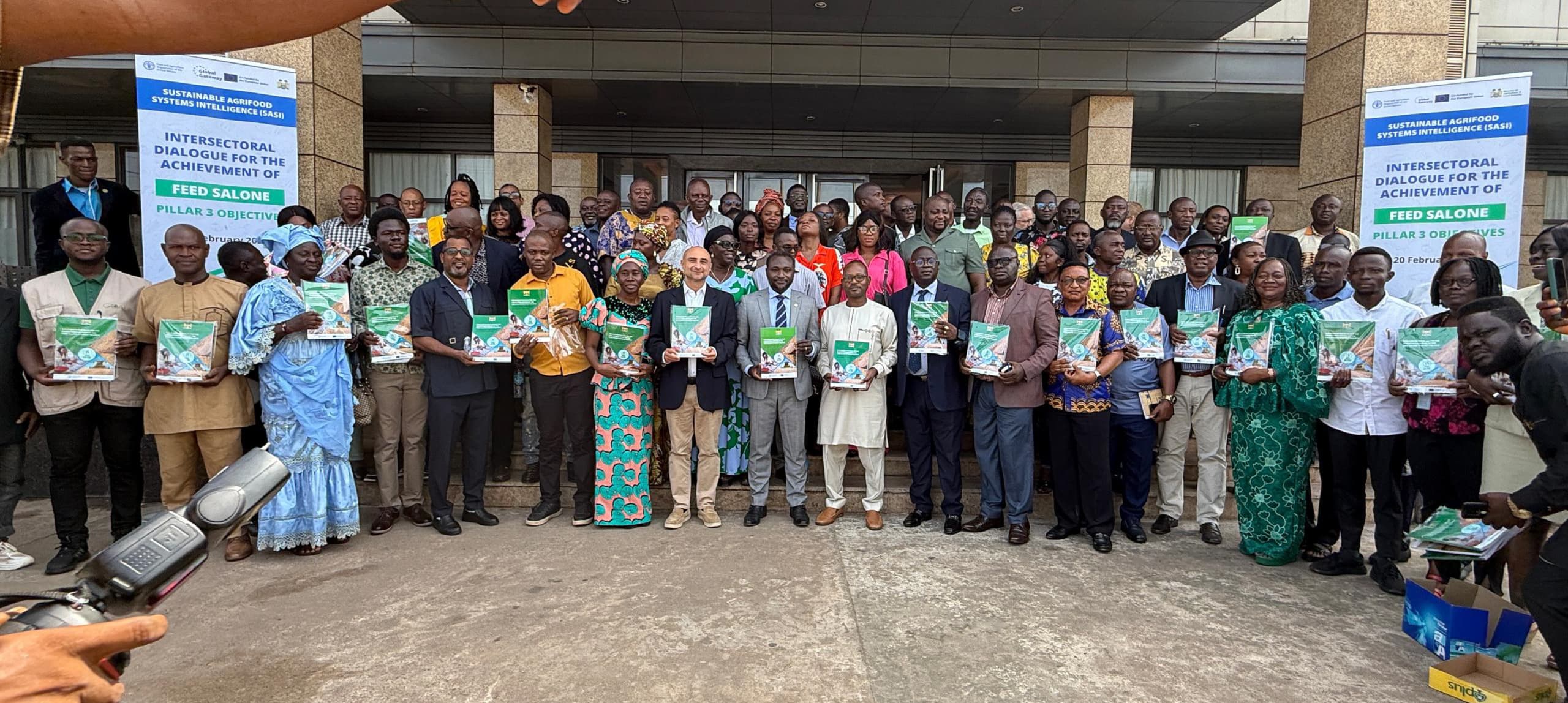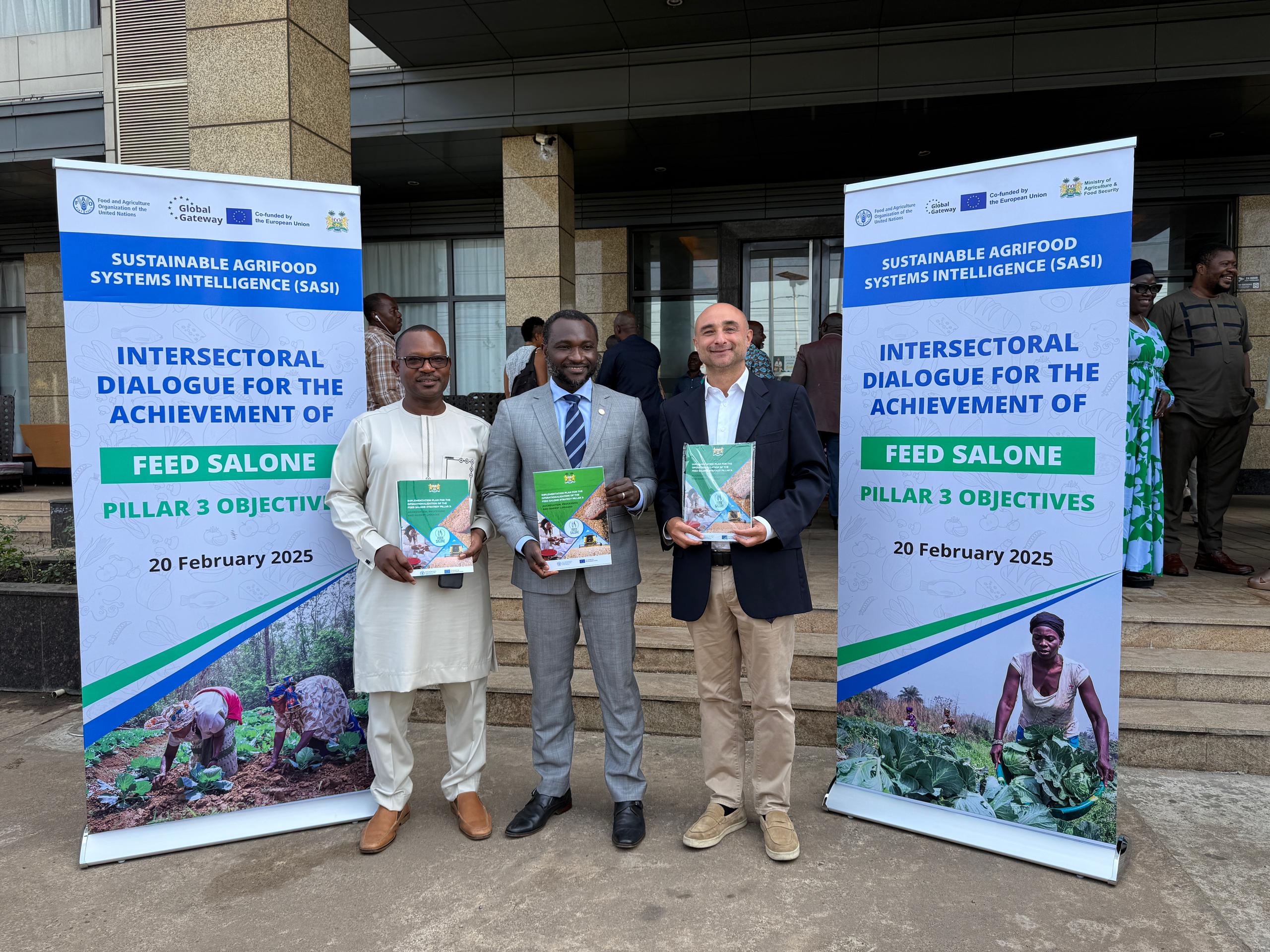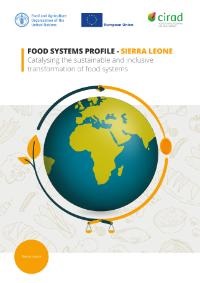Agrifood system stakeholders committed to concrete action to implement and achieve Feed Salone Pillar 3 in Sierra Leone
Vegetables market in Freetown, Sierra Leone.

©FAO/Sebastian Liste
On Thursday, 20 February 2025, representatives from key ministries, agencies, private agrifood sector, financing and development partners gathered in Freetown. They deliberated on critical actions necessary for achieving the results outlined in the Feed Salone Implementation Plan Pillar 3, led by the Ministry of Agriculture and Food Security.
The Feed Salone Strategy aims to boost food security and inclusive economic growth in Sierra Leone through investments. Pillar 3 focuses on enhancing the aggregation, processing, and marketing of agrifood products to increase competitiveness – domestically and on international markets – as well as to improve food security to drive the transformation of the agrifood sector in Sierra Leone.
The Food and Agriculture Organization of the United Nations (FAO) has supported the Ministry of Agriculture and Food Security (MAFS) in developing an Implementation Plan for the Operationalization of the Feed Salone Strategy Pillar 3, as part of the European Union’s Sustainable Agrifood Systems Intelligence Initiative (SASI).
 Participants at the validation workshop in Freetown, Sierra Leone. © FAO
Participants at the validation workshop in Freetown, Sierra Leone. © FAO
The implementation strategy aims to identify approaches to make agrifood systems in the country more inclusive and sustainable, providing more nutritious food and more jobs to the population. To boost competitiveness, the plan emphasizes private sector-led growth, with smallholder farmers playing an active role in the value chains. It prioritises actions in support of enhanced opportunities for women and youth. The government also seeks to increase domestic food production to reduce dependence on imports and ensure access to affordable and nutritious food for all Sierra Leoneans. The operational plan aims to achieve these objectives through multiple actions that encourage the active participation of various actors within agricultural value chains, including individual farmers, producer organizations, entrepreneurs, Micro, Small, and Medium Enterprises (MSMEs), processors, and larger companies.
Participants agreed to pursue these objectives and announced specific results to be achieved by 2028. They include, among others:
- Expanding rice sector investments and rice milling capacity from 112 000 tonnes to 650 240 tonnes per annum while improving the quality of processed rice and promoting increased private sector investment in rice processing.
- Boosting egg production of both individual producers and companies from 3 million to 15 million eggs per annum, with increased participation of women, youth and disabled persons.
- Expanding land cultivated for onion production.
- Increasing the share of cassava production being sold and processed, with more opportunities for processing companies.
- Encouraging increased production and raising the quality of Sierra Leone’s cashew output, to take advantage of opportunities in international markets.
The Ministry of Agriculture and Food Security (MAFS) is responsible for monitoring, coordinating, and supporting the development of this important Feed Salone pillar. Henry Musa Kpaka, Minister of Agriculture and Food Security said: “We are committed to transform sustainably the agrifood sector in the country, ensuring inclusivity and job creation for our population. We are now calling upon other ministries, development partners, private sector, NGOs and civil society, farmers, farmer cooperatives and associations to contribute to the transformation.”
Federico Capurro, Food Systems Programme Manager at the European Union Delegation in Sierra Leone said: “The European Union is encouraging Sierra Leone to reach the objectives of the Feed Salone strategy, through financial and technical support. This plan is a first step towards sustainable agrifood systems.”
Saeed Abubakar Bancie, FAO Representative in Sierra Leone said: “We supported the design of this plan by the Ministry and are glad to see it officially adopted today. It is both ambitious and grounded in reality, and we trust that it will greatly contribute to ensuring sustainable growth and greater inclusivity in Sierra Leone’s food production.”
The SASI initiative, a partnership between the EU, FAO and Agrinatura, supports countries to translate national goals and plans into operational programs, policies and investments that enhance the economic, environmental and social sustainability of their agrifood systems.
 Participatory multi-stakeholder validation workshop in Freetown, Sierra Leone. © FAO
Participatory multi-stakeholder validation workshop in Freetown, Sierra Leone. © FAO
Related publication

